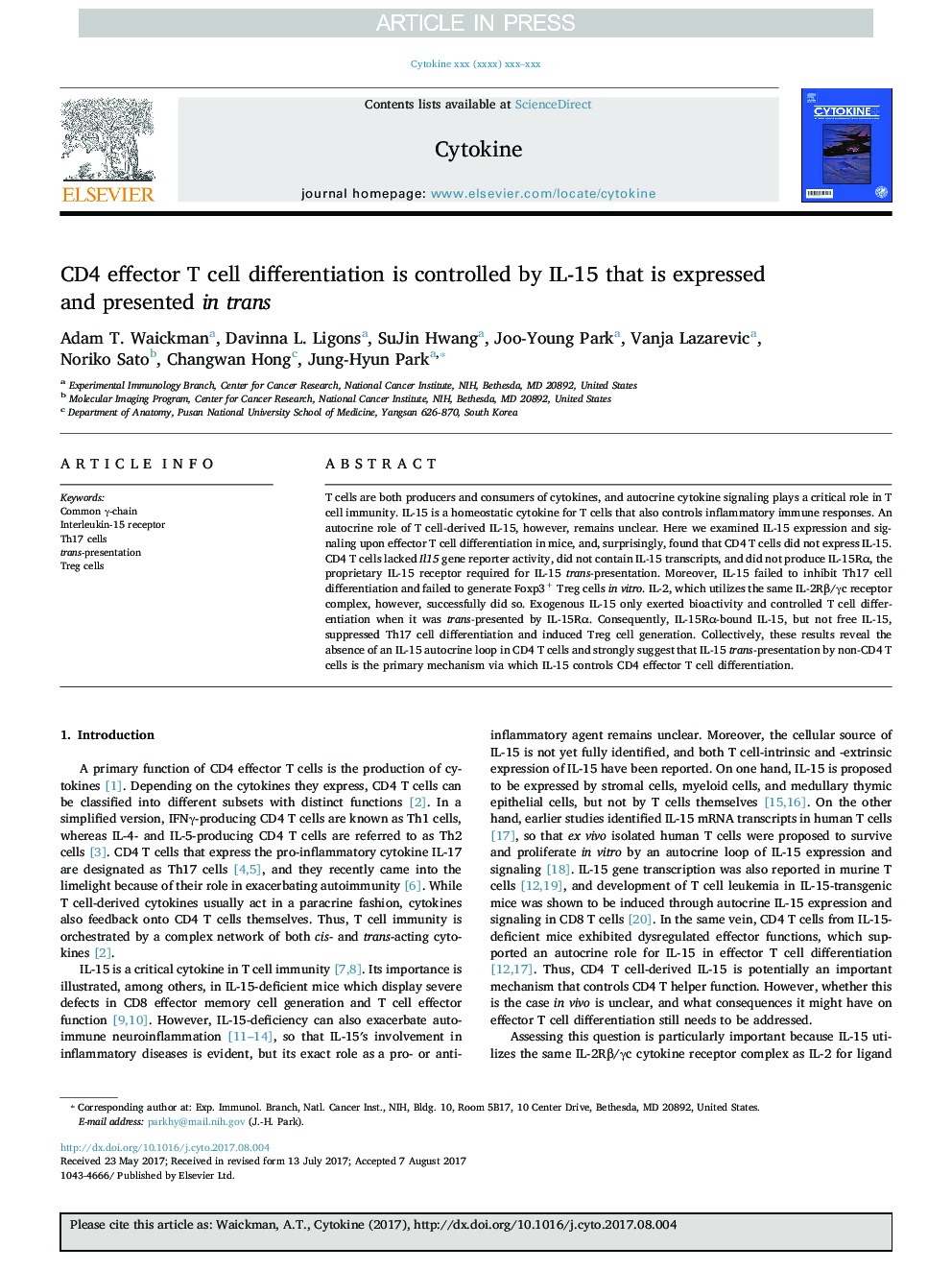| Article ID | Journal | Published Year | Pages | File Type |
|---|---|---|---|---|
| 8629534 | Cytokine | 2017 | 9 Pages |
Abstract
T cells are both producers and consumers of cytokines, and autocrine cytokine signaling plays a critical role in T cell immunity. IL-15 is a homeostatic cytokine for T cells that also controls inflammatory immune responses. An autocrine role of T cell-derived IL-15, however, remains unclear. Here we examined IL-15 expression and signaling upon effector T cell differentiation in mice, and, surprisingly, found that CD4 T cells did not express IL-15. CD4 T cells lacked Il15 gene reporter activity, did not contain IL-15 transcripts, and did not produce IL-15Rα, the proprietary IL-15 receptor required for IL-15 trans-presentation. Moreover, IL-15 failed to inhibit Th17 cell differentiation and failed to generate Foxp3+ Treg cells in vitro. IL-2, which utilizes the same IL-2Rβ/γc receptor complex, however, successfully did so. Exogenous IL-15 only exerted bioactivity and controlled T cell differentiation when it was trans-presented by IL-15Rα. Consequently, IL-15Rα-bound IL-15, but not free IL-15, suppressed Th17 cell differentiation and induced Treg cell generation. Collectively, these results reveal the absence of an IL-15 autocrine loop in CD4 T cells and strongly suggest that IL-15 trans-presentation by non-CD4 T cells is the primary mechanism via which IL-15 controls CD4 effector T cell differentiation.
Keywords
Related Topics
Life Sciences
Biochemistry, Genetics and Molecular Biology
Endocrinology
Authors
Adam T. Waickman, Davinna L. Ligons, SuJin Hwang, Joo-Young Park, Vanja Lazarevic, Noriko Sato, Changwan Hong, Jung-Hyun Park,
